Welcome to AquaInvest Platform: A Knowledge & Learning Platform
The objective of this platform is to share knowledge, tools, and best aquaculture practices among practitioners, policymakers, innovators, researchers, and experts, and to provide periodic updates and inform on current development in aquaculture. The present activity seeks to identify gaps, innovations, opportunities, and new markets for aquaculture industry to scale up and alleviate poverty and improve global environmental resilience.
To get started, please click here for the Quick Start guide.
Harnessing the Waters: Sustainable Aquaculture
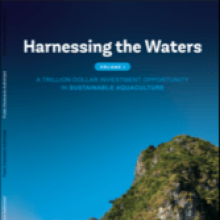
The Aquaculture Digital Roadmap : Transforming Aquaculture for Global Prosperity and Sustainability
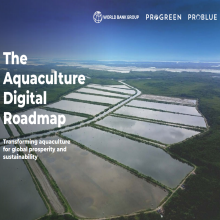
The World Bank Aquaculture Digital Roadmap aims to highlight the role of sustainable aquaculture as a strategic priority for the World Bank. The roadmap seeks to strengthen knowledge, capacities, and awareness across the World Bank to unlock the potential of aquaculture in landscape and seascape investment, achieving the Sustainable Development Goals (SDGs) and helping countries to grow their economies, reduce poverty, improve their food security, and build resilience to the impacts of climate change. Download the Report.
Global Aquabusiness Investment Guide

Global Seaweed New and Emerging Markets Report 2023
With its ability to sink carbon, sustain marine biodiversity, employ women, and unlock value chains, seaweed farming demonstrates how development, climate, and nature work together to generate value and uplift communities. Seaweed farming can help build a world free of poverty on a livable planet and has enormous growth potential.
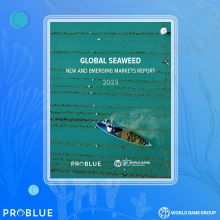
Download the Report ll Download the Executive Summary
In case you haven’t seen: https://twitter.com/WorldBankAfrica/status/1732479500242333985
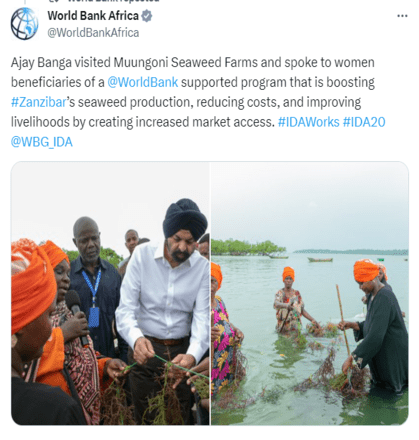
The State of World Fisheries and Aquaculture 2024
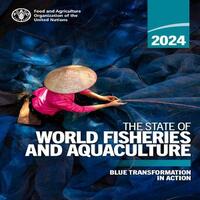
The 2024 edition of The State of World Fisheries and Aquaculture features the Blue Transformation in action, illustrated by activities and initiatives, led by FAO in collaboration with Members, partners and key stakeholders, to integrate aquatic foods into global food security and sustainability, enhance policy advocacy, scientific research and capacity building, disseminate sustainable practices and technological innovations, and support community involvement. The State of World Fisheries and Aquaculture 2024 provides the most up-to-date and evidence-based information, supporting policy, scientific and technical insights on challenges, opportunities and innovations shaping the present and future of the sector, for the benefit of a wide and expanding audience of policymakers, managers, scientists, fishers, farmers, traders, civil society activists and consumers. Download the Report.
The State of World Fisheries and Aquaculture (SOFIA) 2022
The State of World Fisheries and Aquaculture 2020
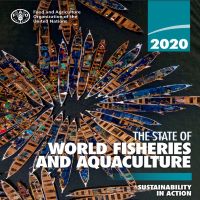
The Potential of the Blue Economy : Increasing Long-term Benefits of the Sustainable Use of Marine Resources for Small Island Developing States and Coastal Least Developed Countries.
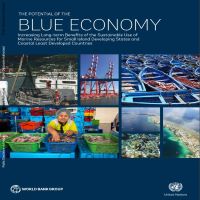
Opportunities and challenges for aquaculture in developing countries
The interest in aquaculture projects is growing. Considering the specificities of aquaculture and the potential challenges linked to the development of this sector, the Commission’s Directorate-General for International Cooperation and Development (DEVCO), Agence Française de Développement (AFD) and the German International Development Agency (GIZ) commissioned this common reference document for use by colleagues in European Union Delegations (EUDs) and in GIZ/AFD country offices. The purpose of the document is to highlight the opportunities and the challenges of sustainable aquaculture development in developing countries. This reference document should not be considered as a set of guidelines, but rather as a compendium of established concepts and past experiences useful for those interested in developing, funding or managing aquaculture projects. As will become apparent, there are no simple, universal solutions to developing sustainable aquaculture in all its different forms; this document is intended to outline the fundamentals required when considering possible interventions. Read more
Seaweed Revolution: A Manifesto for a Sustainable Future
This seaweed manifesto (prepared by United Nations Global Compact ) is a visionary document outlining how seaweed can contribute to delivering on the sustainable development goals. It defines a vision for the industry, explores the opportunities and benefits, as well as outlining the challenges and barriers for responsible development of the industry. The focus is on the untapped potential, which might not be met without new thought leadership and convening power to improve knowledge and expertise, develop new funding initiatives and influence policy makers, regulators, and consumers. Read More
Climate Change and Marine Fisheries in Africa : Assessing Vulnerability and Strengthening Adaptation Capacity
The understanding of the impacts of climate change on fisheries is constantly increasing and can be organized around several main factors - ocean acidification, sea-level rise, higher water temperatures, deoxygenation, changes in ocean currents - although these factors are unequally known and hard to model in terms of scope - where they will occur and where they will be felt the most - and severity. For instance, although the impacts of acidification are not as well understood as the effects of the other impacts, and are more difficult to measure, it is likely that they are more severe and widespread, particularly on shell-forming species, invertebrates, and coral associated species and throughout any carbon-dependent ecological processes. This report aims to assess, to the extent possible, the potential impact of climate change on fisheries and the related well-being of coastal African countries. It focuses on how the observed and anticipated ecological impacts of climate change are likely to affect fish stocks and the fisheries that depend on them and highlights the coastal countries and regions in Africa that are most vulnerable to climate change. Based on these projections, the report further assesses subsequent socioeconomic impacts on coastal countries and communities. The report concludes with a discussion of lessons learned from the modeling results. Read more
The Sunken Billions Revisited : Progress and Challenges in Global Marine Fisheries
Global marine fisheries are in crisis: 90 percent are fully fished and overfished. The result is lost economic benefits of approximately $83 billion a year ---the “sunken billions” of the title. Reducing overfishing would allow severely overexploited fish stocks to recover over time. Subsequently, the combination of larger fish stocks and reduced but sustainable fishing activities would lead to higher economic yields. However, to reach that equilibrium, comprehensive and coordinated reforms are necessary. The Sunken Billions Revisited: Progress and Challenges in Global Marine Fisheries builds on The Sunken Billions: The Economic Justification for Fisheries Reform, a 2009 study published by the World Bank and Food and Agriculture Organization of the United Nations, but with a deeper regional analysis. Read more

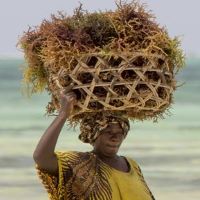
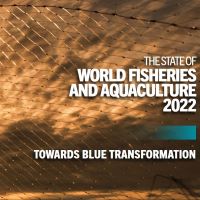
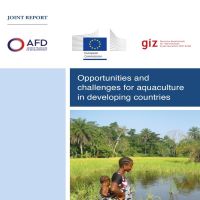
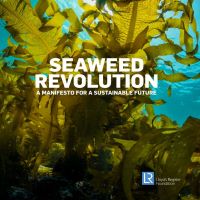
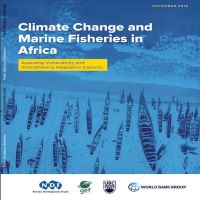
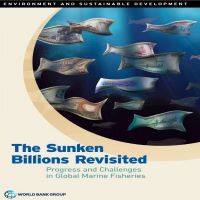
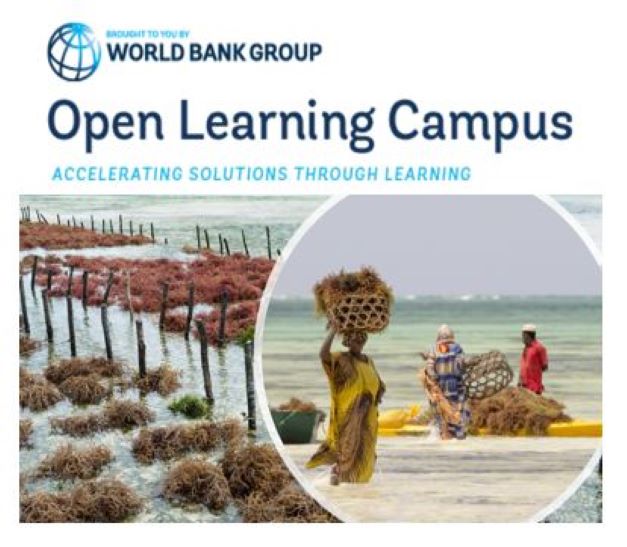
Mail sent to Community Managers, Please access the group once it get approved by Moderator.